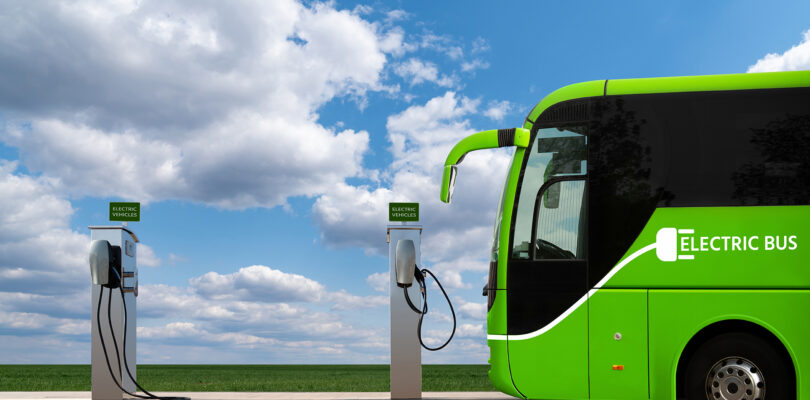Young people at COP22 in Marrakech, Morocco will live with the consequences of the decisions made there. (Photo by UNFCCC) Posted for media use.
By Sunny Lewis
MARRAKECH, Morocco, November 15, 2016 (Maximpact.com News) – Sustainable transport leaders from the private sector met at the UN Climate Change Conference in Marrakech (COP22) on Saturday for the Global Climate Action event on Transport to move the world towards a cooler future.
They discussed how progress made on 15 initiatives covering all transport modes and more than 100 countries demonstrates that tackling emissions from transport is both possible and cost effective.
“The transport sector has made a great start, leading by example and spearheading the development of the broader Global Climate Action Agenda,” said Ségolène Royal, France’s Minister of the Environment, Energy and Marine Affairs, responsible for International Climate Relations.
“The 15 non-state actor transport initiatives whose progress are being reported in Marrakech have such a scope and scale that they are well on the way to triggering a broad transformation of the transport sector, as required to deliver on the Paris Agreement,” said Royal.
Prepared for the Marrakech conference, a report on the 15 Global Climate Action Agenda Transport Initiatives was released earlier this month.
The 15 initiatives are:
1. Airport Carbon Accreditation: Airport Carbon Accreditation, developed and launched by Airports Council International (ACI) Europe in 2009, is the only global carbon management standard for airports. The initiative aims to increase airport accreditations in all regions with a commitment for 50 carbon neutral airports in Europe by 2030.
2. Aviation’s Climate Action Takes Off: Collaborative climate action across the air transport sector aims to control growth of international aviation CO2 emissions through measures that include a goal of carbon-neutral growth through a global market-based mechanism.
A landmark agreement, adopted at the last International Civil Aviation Organization (ICAO) Assembly in October 2016, makes the aviation industry the first sector to adopt a global market-based measure to address climate change.
3. The C40 Clean Bus Declaration, led by the C40 Cities Climate Leadership Group, aims to decarbonize urban mass transport.
Participating cities will incorporate over 160,000 buses in their fleets by 2020 and have committed to switching 42,000 buses to low emission. Greenhouse gas savings will be almost 900,000 tons a year, with a potential overall savings of 2.8 million tons each year if the cities switch their entire bus fleets.
To date, 26 cities around the world have signed the Clean Bus Declaration, demonstrating strong global demand.
4. Global Fuel Economy Initiative (GEFI) aims to double the average fuel economy of new light duty vehicles globally by 2030, and all vehicles by 2050.
For COP21 last year in Paris, GFEI launched “100 for 50 by 50,” a campaign to encourage new countries to commit to GFEI’s fuel economy improvement goals by developing and adopting national fuel economy policies, and to dedicate time and resources to supporting GFEI’s work. At COP21 GFEI announced funding for 40 new countries joining their work, with more expressing interest.
5. Global Green Freight Action Plan: Reducing the climate and health impacts of goods transport. The three main objectives are: 1) To align and enhance existing green freight programs; 2) To develop and support new green freight programs globally; and 3) To incorporate black carbon reductions into green freight programs.
Steering group partners include Canada, United States, International Council on Clean Transportation, Clean Air Asia, Smart Freight Centre, and the World Bank. The initiative has received support from 24 countries, 28 nongovernmental organizations, and four private sector companies.
6. ITS for Climate: Using Intelligent Transportation Systems to work towards a low carbon, resilient world and to limit global warming below the 2-degree target and contribute to adaptation to climate change in large cities and isolated territories.
7. Low Carbon Road and Road Transport Initiative: Led by the World Road Association (PIARC), with its 121 government members, the initiative is committed to reducing the carbon footprint of road construction, maintenance and operation through technological innovation, green tendering and contracting. Will develop road networks in line with electric propulsion, autonomous cars, road-vehicle and vehicle-vehicle interactions, and enhancing intermodal cooperation.
8. MobiliseYourCity: 100 cities engaged in sustainable urban mobility planning to reduce greenhouse gas emissions in urban transport in developing countries. This initiative was unveiled during the World Climate and Territories Summit that took place in July in Lyon, France.
9. Navigating a Changing Climate: Think Climate, a multi-stakeholder coalition of 10 associations with interests in waterborne transport infrastructure, is committed to promoting a shift to low carbon inland and maritime navigation infrastructure.
10. The UIC Low Carbon Sustainable Rail Transport Challenge: This challenge sets out ambitious but achievable targets for improvement of rail sector energy efficiency, reductions in greenhouse gas emissions and a more sustainable balance between transport modes.
Implementation of the Challenge will result in 50 percent reduction in CO2 emissions from train operations by 2030, and a 75 percent reduction by 2050, as well as a 50 percent reduction in energy consumption from train operations by 2030, and a 60 percent reduction by 2050.
11. UITP Declaration on Climate Change Leadership: UITP, the International Association of Public Transport, brings 350 future commitments and actions from 110 public transport undertakings in 80 cities. UITP’s goal is to double the market share of public transport by 2025, which would prevent half a billion tons of CO2 equivalent in 2025.
12. Urban Electric Mobility Initiative: The UEMI aims to boost the share of electric vehicles in urban transport and integrate electric mobility into a wider concept of sustainable urban transport that achieves a 30 percent reduction of greenhouse gas emissions in urban areas by 2030.
The UEMI is an active partnership that aims to track international action on electric mobility and to initiate local action. Current partners include: UN-Habitat, Wuppertal Institute, the International Energy Agency, Michelin, Clean Air Asia and the European Commission.
13. World Cycling Alliance and European Cyclists’ Federation have committed to increase the modal share of cycling worldwide and to double cycling in Europe by 2020. The commitment is supported by ECF and WCA, representing about 100 civil society organizations worldwide.
14. Worldwide Taxis4SmartCities: This initiative aims to accelerate the introduction of low emission vehicles in taxis fleets by 2020 and 2030 and promote sustainability. Nineteen companies representing more than 120,000 vehicles have committed to date.
15. ZEV Alliance: The International Zero-Emission Vehicle Alliance (ZEV Alliance) is a collaboration of governments acting together to accelerate the adoption of zero-emission vehicles – electric, plug-in hybrid, and fuel cell vehicles.
British Columbia, California, Connecticut, Germany, Maryland, Massachusetts, the Netherlands, New York, Norway, Oregon, Québec, Rhode Island, United Kingdom, Vermont have signed up to the ZEV Alliance.
Scaled-up actions taken by the Global Climate Action Agenda Transport initiatives since COP21 in December 2015 include:
- The Global Fuel Economy Initiative is supporting an additional 40 countries to realize the financial and CO2 benefits of improved vehicle fuel economy.
- The Airport Carbon Accreditation Scheme now has 173 certified airports worldwide, including 26 carbon neutral airports; and 36 percent of air passengers now travel through an Airport Carbon Accredited airport.
- The MobiliseYourCity initiative secured 35 million euro in funding over the last 12 months and is making use of COP22 to announce the start of developing Sustainable Urban Mobility plans in Morocco and Cameroon.
As the COP22 host country, Morocco is taking a leading role in reducing transport emissions. Morocco’s Transport Minister Mohamed Boussaid said Morocco is launching the new African Association for Sustainable Road Transport at COP22.
“For a growing region like Africa which is heavily impacted by climate change we need affordable and locally appropriate transport solutions that support economic and social development, provide access to mobility, and create local value,” said Boussaid.
Through the “we want to share experience and catalyse the development of resilient and intelligent highway infrastructure and the deployment of e-mobility in Morocco and beyond,” said Boussaid.
Transport is already responsible for one fourth of energy-related greenhouse gas emissions. under a business as usual scenario, transport emissions can be expected to grow from 7.7 Gt to around 15Gt by 2050.
Nissan Leaf electric taxi charging at a Petrobras station in Rio de Janeiro, Brazil, 2013 (Photo by mariordo59) Creative Commons license via Flickr.
This is a global problem. For 45 percent of countries, transport is the largest source of energy related emissions, for the rest it is the second largest source.
But discussions at COP22 indicate that tackling emissions from transport is possible and cost effective, sustainable solutions are available.
“Transport initiatives by non-state actors are key for a successful implementation of the Nationally Determined Contributions submitted by over 160 countries on the occasion of COP21 in Paris,” said Dr. Hakima El Haite, Minister of Environment and Climate Champion, Morocco.
“The transport initiatives, by creating a new reality on the ground, increase popular understanding and support for climate action which, in turn, drives up governments’ ambition to tackle climate change.”
To find out more about the 15 initiatives, please read: Global Climate Action Agenda (GCAA) Transport Initiatives: Stock-take on action on the Implementation of the Paris Agreement on Climate Change and contribution towards the 2030 Global Goals on Sustainable Development Report

